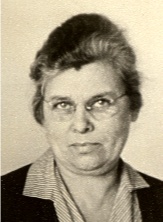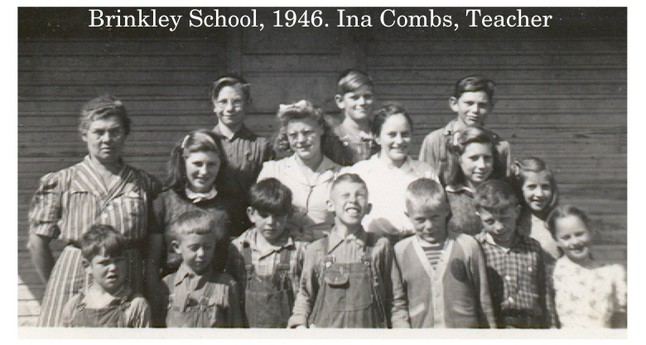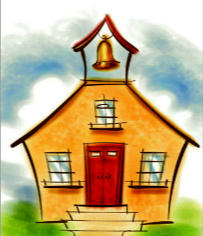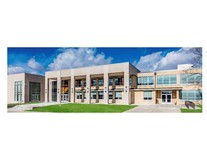
TIGER ALUMNI CENTER -- ERHS/RCHS

Country County Schools Culture
Ina Fuson Combs' Memoirs

(1890-1987)
Before marriage, Ina Fuson Combs taught in local one-room schoolhouses for four years. She was called back to teach another four years, 33 years later, due to the shortage of teachers during WW II. These articles come from her memoirs, written during the 1980's.
![]()
A FAMILY OF TEACHERS
I am now in my golden years but still have the sensation of school in the blood when autumn weather turns off the warm days of summer. Dad was the father of ten school teachers, and no wonder, since teaching was his vocation for sixteen years. Perhaps school teaching was in the blood. My first taste of school was when I visited Father’s school at the age of five. I remember I wanted to spell the word “bell”, that all in the primary class missed, but some time in my early training I was taught that might be too assuming and embarrassing for the teacher. So to this day, no one knows that I could have stood the floor on the word “bell”. However that was a starter in the activities of school.
From that time on, I was a regular pupil in the grades from the first, on through the eighth. This was true with the other family members, and from the eighth grade it was on to college and to teaching. As I afore mentioned, I was one of ten teachers in the family; not all teaching in the country schools at the same time, or there might not have been schools enough to go around. We were all ages and stages, and as you might know, our teaching years were all strung out. Somewhere along the line the older members went on to college, went into medical school, banking or the fatal step of marriage.
In those days, marriage interrupted a vocational career for a woman. After four years as a teacher, I’m afraid I fell into that category. Until the forties, and thirty-three years of family life with four children, I did it all over again. The wages came in handy, from these last four years of school in my life, to defray college expenses of the two younger members. You might say history was repeating itself.
Now I am aged and out of school, or sending children to school, but I still remember walking along to school out in the country as it were. We had a mile to walk, and the autumn air was so brisk, and the Spanish needles were in bloom. The first telephone poles were erected along our school road and made such a humming noise when you applied an ear to listen. Oh! Those were the days. You were not alone in these experiences; there was your big family, to say nothing about the neighbors' families that made up a school of from forty to sixty pupils.
Come to think of it, our big family turned out more teachers than all the rest of the school in our day. This gives precedence to the foregoing title. Sorry, many of those old school mates are not with us any more. In fact, most of them have stepped off the stage of action. I’d be quite alone, were it not for my immediate family, and the longevity of the remaining members of my first family. No doubt autumn still blooms the golden rod and the Spanish needle along the country road to the, now discontinued, one room school house.
EARLY SCHOOLS
There was much social connection with the Church and school life over the turn of the century. You need to bear in mind, this was before telephones, automobiles, or hard roads. You’d be surprised the activities that are cooked up in connection with the country school.
I shall take the activities of the country school first as there was more freedom about the activities of the school, than the church. In the early days, there were log school houses where only the boys went to school. Finally it was decided that girls needed to learn to read and write. (All you ever heard was a “women’s place was in the home”. Women could not vote until 1919. Now, ERA has passed in all but two states, and Illinois is one contrary state.)
Women were secondary to men when it came to teaching school. Directors wanted a man teacher who could keep the boys under control. Women drew less salary than men for the same work. A woman teacher was cheaper. A pregnant woman was kept out of sight even as late as 1920. Now she goes out in public, or anywhere else she wishes to go.
Not many people went to college for the additional education. A high school education was assured only to those students who lived in and near the institution itself. Many drove in from the country near by. The rest of us went to college at the same expense it would have taken to live as boarders in our county seat.
The public school as you know comprised the whole district, the children to attend school and the parents to send them to school. The school had its holidays, affording the parents and teacher an opportunity to get acquainted. One of the most important was the last day of school when the parents brought in a big dinner and often heard the program of entertainment prepared by teacher and pupils. Usually the teacher had the pupils trained in speaking or singing. I remember one of our most responsible teachers had night exhibitions, and took a charge at the door to be used for some civic purpose – for sidewalks, for instance, in our little town.
Ordinarily schools just kept as of common, but most every district had at least one spelling school during the year. This in itself, is quite a story. It was expected that all the neighboring schools would attend. The news got around even tho there were no telephones, and pupils could walk the distance of two miles, if there was no other means of transportation. That was the distance to school for some pupils. Crowds from neighboring schools would walk along together. Here is where a great opportunity came in for social activity. Young people seldom miss an opportunity to mingle when the opportunity presents itself. It usually was an overflowing crowd for any school house. Lights were a series of hung lanterns, and this I had not thot of for years. How inconvenient! Perhaps there was one, two burner lamp on the teacher’s desk.
At the spelling match itself each speller, or anyone who would give it a try, was chosen up into sides, and lined up along the wall and words were pronounced for half an hour, or until it was time to begin to spell for the floor. It was a great honor to stand the floor. When you missed a word you’d take your seat, and finally the last on up to spell the word missed, had the great honor of standing the floor. This was when you stood out, if you could answer to that description. No prize was given, as I remember, but the honor was great! I knew a young lady who attracted the young man who was later to be her husband, by standing the floor at a spelling school.
The spelling was followed by a ciphering match. Between was a short recess, which afforded young folks great opportunities to meet each other. The first contest was followed by choosing another contestant that you thot could beat your contestant. This was even more spectacular than spelling. Many would refuse to compete, for it was sometimes quite rough; especially if you were not very sure of your ability at mathematics.
THE OLD FASHIONED SCHOOL
The country school was a part of our social life in the early days. The church was indispensable, of course, but the district schools, dotted all over the countryside, at every two mile cross road, was indispensable, too. These were the first educational institutions whereby all boys and girls could learn to read, write, and count. What good is it, if you are the only one who can read? Why would we print newspapers? It’s like a language – it’s hard to understand, if we don’t all speak the same language.
It was not compulsive in the early days, for children to attend school until they were sixteen. A common school education doesn’t seem like much, but it was all they had, in the early days. Many a grandfather or grandmother never learned to read or write. How unheard of, today! Now we do not stop at common, but go all through high school. If you apply for most any job today, the first thing you are asked – Are you a high school graduate?
Back tracking a bit, on the importance of common school. Let’s just say, if you were lucky enough to have parents who were healthy, wealthy, and wise, you were off to a good start. Most pioneers had no such a grand opportunity. Healthy maybe, only for the communicable diseases that ran rampant over the turn of the century, and before. As for wealthy – most pioneers never knew the meaning of the word. People were wise who could see, in the far flung future, progress could be made in most every respect.
But we are dwelling on the primary school, for the child who has never known another society outside of his home. He is now six years old and sent to the cross road school to meet and associate with many others of the same caliber. His mother sends him well dressed and clean and the teacher meets him with a smile. She points him to a seat of his size in the school house that will seat from forty to sixty pupils. He is bright eyed, as are all the other boys and girls.
A bell rings, and soon is recognized as law and order. Oh! The room is comfortable and airy on the first day of school. Johnie has a few books, and the teacher gives him another primer, just alike all the rest. He takes pride in seeing how clean he can keep it – until after dinner, he forgets to wash his hands, and he gets thumb smudges on the first few pages. He thinks after that to be more careful. He has learned his first lesson. We all have to start somewhere.
After that, you can tell whether he is off to a good start. He has also learned how to associate with other children his own age, which ones are attentive, and those who are not otherwise interested. With his parents to encourage him at home, he feels his potential, as compared to the rest of the school. Soon he finds himself acquainted with others in his society, and compares privileges and opportunities. All too soon, he his sixteen and graduating, or quituation, as the case may be.
In those early days, the district didn’t realize what a graduation could mean to boys and girls. There was no great day, a monumental day in honor of the student who had applied himself to the task at hand, for the say, eight or ten years that he had been in school. The first eighth grade graduation in my county was in 1910. How great is that milestone in a young life!
THE THREE R'S OF YESTERYEAR
Reading, Writing & Arithmetic, we used to consider the main points of education at the common school level. If more and better knowledge was desired, tho not required, the eighth grade pupil went on to attend high school. High school was a requisite before normal college. This was not as easy done as said. In horse and buggy days, only students living near the county high school had easy access to the same, tho many drove long distances every day to avail themselves of the extended privilege. Others boarded in the city, same as if in some distant college of their choice. It was possible to get academic courses in our normal colleges. Our most promising students followed one course or another. But a great number simply dropped out, contending they'd rather work. It was the only course left for the least interested or poor in scholastic attainments.
We hear today that many high school graduates can't read or write above the third grade level. That's too bad, and will be a handicap the rest of their lives. The cause of course is one of two things, after it was made compulsory to go to school until the age of sixteen. Many were ready to quit their books long before that because it was a dull drag. Others were needed to help their parents, who did not always realize the advantage of a good education. Many were not scholastic inclined.
As one of a family of teachers, I’ve been asked, “How did the country teacher handle the eight grades that were found in all the country schools?" Not often, the teacher was exempt from teaching a single grade, and that, because there wasn’t a single pupil fitting that grade. In the early years, attendance was large, from 35-60, say, in one school district, whereas in later years, since consolidation, or just previous to consolidation, attendance was down to say, 10-15 per district. In one pitiful case, there was one little girl, and the teacher was her father. Perhaps consolidation didn’t come any too soon.
The money now set aside for school purposes is now divided between the teachers and the bus drivers. It is supposed better for all school children to be where they can associate with other children. In cases when long on the bus, they still can make use of their time, either scholastic or socially. There is much less exposure to bad weather, as for pupils walking a long distance to the country school. Some of us of previous generations can confirm to that.
All grades in one school were well handled, allotting ten to fifteen minutes per class. Our county's course of study arranged the last 2 grades to alternate, by teaching the seventh grade one year, and the eighth the next. It worked very well. Pupils wrote for seventh year diploma, and the following year, the eighth. By the time the pupil was 16 years of age, he was well reviewed in all the required subjects. There was no excuse for him to read like a fourth grader, or be unable to express himself in writing with fair composition. With other required subjects equally mastered, he was ready to compete in high school.
I haven’t said much about the modern school system, and taking all together, it is a system. Schools are now divided into grades, the kindergarten and first grades, then the middle school, then to high school and to college if you are lucky. State funds are to be had for college education. Our United States Citizen is second to none.

How different from the old days of the three R’s. There was more repetition in the grades in the old days, and perhaps we had better readers and writers than in college today. Civilization has come about through our churches, schools and colleges. These are the bridges that our pioneer fathers built for our safe journey through life. We can do no less for the youth today than to promote our churches and schools. Man passes through life but once. If we do our best there ’ll be no regrets.
End.

Shared by Granddaughter Jean Combs Henry, Class of 1976
Jean also is sharing photos her family's collection. To see those go to our photo Gallery: http://www.erhsalumni.net/class_gallery.cfm?gallery_id=45517&member_id=3542607




